AMERICAN ASSOCIATION
FOR STATE AND LOCAL HISTORY
BOOK SERIES
SERIES EDITOR
Rebecca K. Shrum, Indiana UniversityPurdue University Indianapolis
MANAGING EDITOR
Bob Beatty, AASLH
EDITORIAL BOARD
Anne W. Ackerson, Leading by Design
William Bomar, University of Alabama Museums
Jessica Dorman, The Historic New Orleans Collection
W. Eric Emerson, South Carolina Department of Archives and History
Tim Grove, National Air and Space Museum
Laura Koloski, Pew Center for Arts & Heritage
Russell Lewis, Chicago History Museum
Jane Lindsey, JuneauDouglas City Museum
Ann E. McCleary, University of West Georgia
Laurie Ossman, The Antiquities Coalition
Laura Roberts, Roberts Consulting
Julia Rose, Homewood Museum at Johns Hopkins University
Kimberly Springle, Charles Sumner School Museum and Archives
William S. Walker, Cooperstown Graduate Program, SUNY Oneonta
ABOUT THE SERIES
The American Association for State and Local History Book Series addresses issues critical to the field of state and local history through interpretive, intellectual, scholarly, and educational texts. To submit a proposal or manuscript to the series, please request proposal guidelines from AASLH headquarters: AASLH Editorial Board, 2021 21st Ave. South, Suite 320, Nashville, Tennessee 37212. Telephone: (615) 320-3203. Website: www.aaslh.org.
ABOUT THE ORGANIZATION
The American Association for State and Local History (AASLH) is a national history membership association headquartered in Nashville, Tennessee, that provides leadership and support for its members who preserve and interpret state and local history in order to make the past more meaningful to all people. AASLH members are leaders in preserving, researching, and interpreting traces of the American past to connect the people, thoughts, and events of yesterday with the creative memories and abiding concerns of people, communities, and our nation today. In addition to sponsorship of this book series, AASLH publishes History News magazine, a newsletter, technical leaflets and reports, and other materials; confers prizes and awards in recognition of outstanding achievement in the field; supports a broad education program and other activities designed to help members work more effectively; and advocates on behalf of the discipline of history. To join AASLH, go to www.aaslh.org or contact Membership Services, AASLH, 2021 21st Ave. South, Suite 320, Nashville, TN 37212.
Why
Old Places
Matter
How Historic Places Affect Our Identity and Well-Being
Thompson M. Mayes

Washington, DC
ROWMAN & LITTLEFIELD
Lanham Boulder New York London
Published by Rowman & Littlefield
An imprint of The Rowman & Littlefield Publishing Group, Inc.
4501 Forbes Boulevard, Suite 200, Lanham, Maryland 20706
www.rowman.com
Unit A, Whitacre Mews, 26-34 Stannary Street, London SE11 4AB
Copyright 2013, 2014, 2015, 2018 National Trust for Historic Preservation. All Rights Reserved.
All rights reserved. No part of this book may be reproduced in any form or by any electronic or mechanical means, including information storage and retrieval systems, without written permission from the publisher, except by a reviewer who may quote passages in a review.
British Library Cataloguing in Publication Information Available
Library of Congress Cataloging-in-Publication Data
Library of Congress Control Number: 2018949402
ISBN: 978-1-5381-1768-2 (cloth: alk. paper)
ISBN: 978-1-5381-1769-9 (electronic)
 The paper used in this publication meets the minimum requirements of American National Standard for Information SciencesPermanence of Paper for Printed Library Materials, ANSI/NISO Z39.48-1992.
The paper used in this publication meets the minimum requirements of American National Standard for Information SciencesPermanence of Paper for Printed Library Materials, ANSI/NISO Z39.48-1992.
Printed in the United States of America
In memory of my sister, Carol Harris Mayes, and my mother, Elizabeth McCord Mayes
We do not only inhabit space, we also dwell in time.Juhani Pallasmaa
Contents
Acknowledgments
W hy Old Places Matter could not have been written without the many people who kindly shared their ideas with me over the course of years, as well as the institutions that supported my research and the publication of these essays. First and foremost, the National Trust for Historic Preservation unhesitatingly supported the project from the beginning, providing me with a sabbatical to research the ideas, publishing the essays as blog posts through Preservation Forum , and supporting the publication of the essays as a book. The American Academy in Rome awarded me not only the National Endowment for the Arts Rome Prize in Historic Preservation, but more importantly, gave me access to the city of Rome and the astonishingly generous and thoughtful community of fellows, fellow travelers, scholars, and artists at the American Academy. The American Association for State and Local History (AASLH) championed the publication of the essays as part of its book series shortly after I returned from Rome and pursued it through completion.
At the National Trust, a special heartfelt expression of gratitude to Paul Edmondson and particular thanks to Stephanie Meeks, David Brown, Katherine Malone-France, and Lyn Moriarity for their unstinting support of the project. Susan West-Montgomery, Priya Chhaya, Byrd Wood, Julia Rocchi, Germonique Ulmer, Rebecca Bice, Lisa Thompson, and Alison Yue worked with me with thoughtfulness and good humor on the blog posts, articles, communications, and a host of other support; Ross Bradford, Anne Nelson, Sharee Williamson, William Cook, Betsy Merritt, Shantia Anderheggen, and Paul Edmondson took over my regular work while I was in Rome and did it so well and with such pleasure that most of it stayed with them. Thanks also to Raina Regan, Latoya Livingston, Moira Nadal, Elaine Chang, and Georgiana Hale of the law department for their support and goodwill.
Many other present and past colleagues at the National Trust, its sites, and related organizations shared their thoughts, ideas, and support, including Kevin Murphy, Margaret ONeal, James Lindberg, Tabitha Almquist, Mike Powe, Robert Nieweg, Roberta Lane, Rhonda Sincavage, Joseph McGill, Barbara Pahl, John Hildreth, Sheri Freemuth, Kelly Schindler, Brent Leggs, Anthony Veerkamp, Chris Morris, Laurie Ossman, Donna Hassler, Jenny Buddenborg, Rosemarie Rae, Carolyn Brackett, Nancy Tinker, Alicia Leuba, Dennis Hockman, Ashley Wilson, Callie Hawkins, Erin Carlson Mast, David Young, James Schwartz, George McDaniel, Judy Clark, Irv Henderson, Kevin and Mary Daniels, Tim Whalen, Marita Rivero, Jim and Janet Vaughan, Frank Sanchis, Carl Wolf, Tom Cassidy, Marianna Knight, David Field, and Theresa Pasqual. Mary Butler found images and created designs on an impossibly short deadline. Ann Thornton, Kimberly Skelly, and Hilary Baar sought or identified funding for the book.
At the American Academy, I was inspired to understand more about old places through experiencing Rome, but I was even more inspired by the generous interdisciplinary cross-fertilization that the academy fosters. I thank Adele Chatfield-Taylor for her friendship and her unwavering support for historic preservation as a discipline at the academy, Cristina Puglisi for understanding the soul of the academy as a preservation philosophy, Christopher and Anna Celenza for their thoughtful leadership and kindness, Kim Bose for the walks and talks, Peter Benson Miller for his intellect, Sebastian Hierl for always helping me obtain articles and books, Mark Robbins for his continuing engagement, Shawn Miller, Gianpaolo Battaglia, and Giulia Barra for all of their help and good cheer, Alessandro Lima, Tiziana Del Grosso, Chris Behr, Christopher Boswell, Gabriel Soare, and the interns of the Rome Sustainable Food Project for the astonishing food and drinks, as well as the late Pina Pasquontonio, whose persistence surpassed many hurdles.

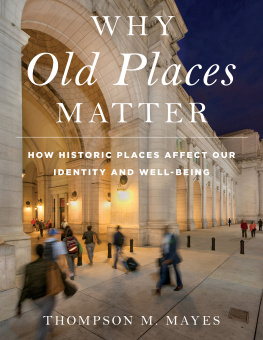
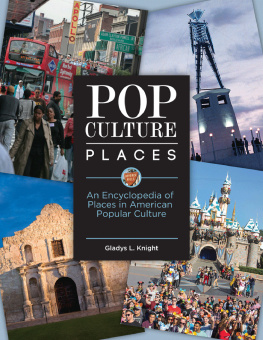

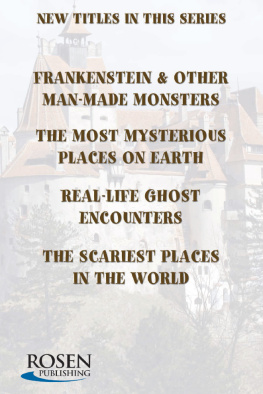
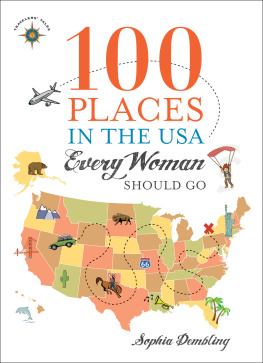

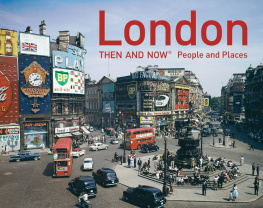
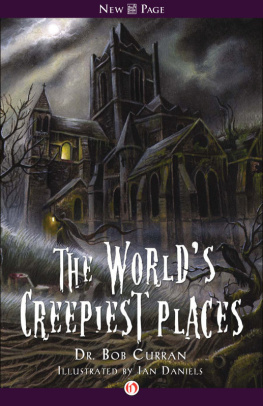
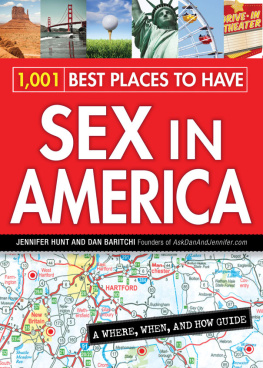


 The paper used in this publication meets the minimum requirements of American National Standard for Information SciencesPermanence of Paper for Printed Library Materials, ANSI/NISO Z39.48-1992.
The paper used in this publication meets the minimum requirements of American National Standard for Information SciencesPermanence of Paper for Printed Library Materials, ANSI/NISO Z39.48-1992.